
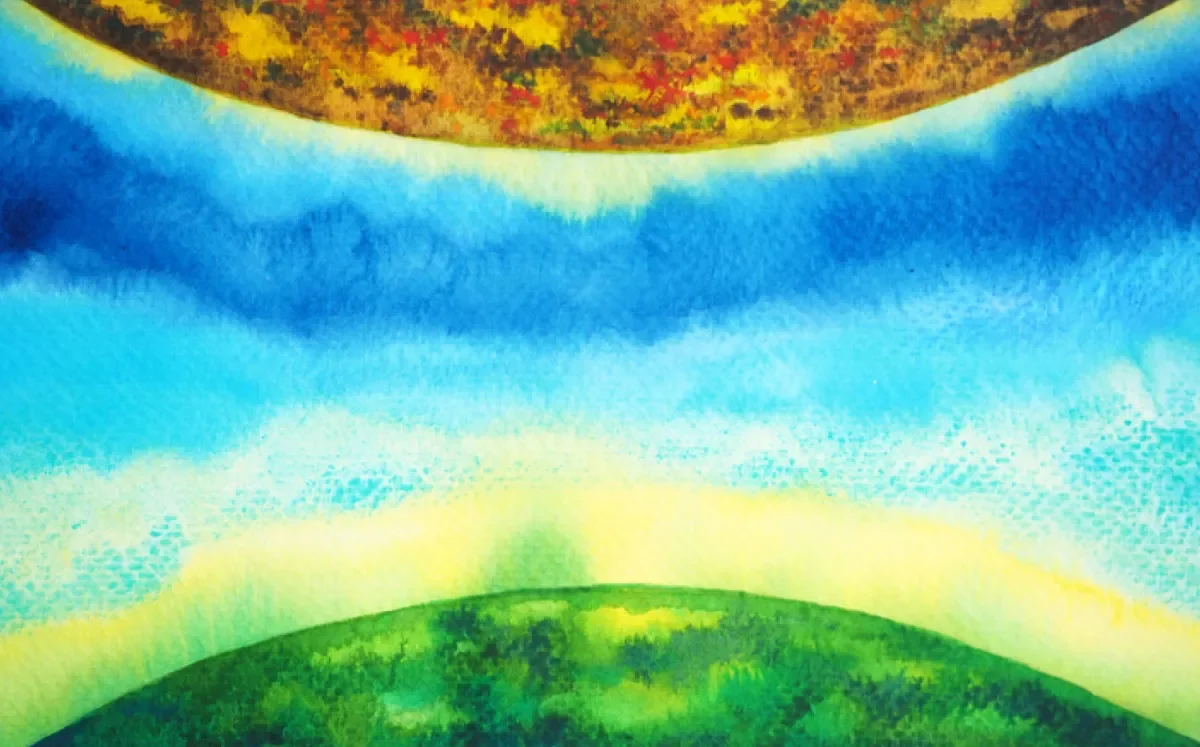
Institute for Climate and Society Annual Conference
Dispatches from a changing climate: Engaging society through activism, storytelling and the arts
The fifth annual DCU Institute for Climate and Society conference took place on 29 April 2025 in HG20, Alice Reeves Building (formerly the Nursing and Human Sciences Building), on the DCU Glasnevin Campus.
Our keynote speaker was Mary Lawlor, UN Special Rapporteur on Human Rights Defenders, who delivered a report to the UN General Assembly this autumn on the challenges faced by human rights defenders working in the context of climate change and a just transition.
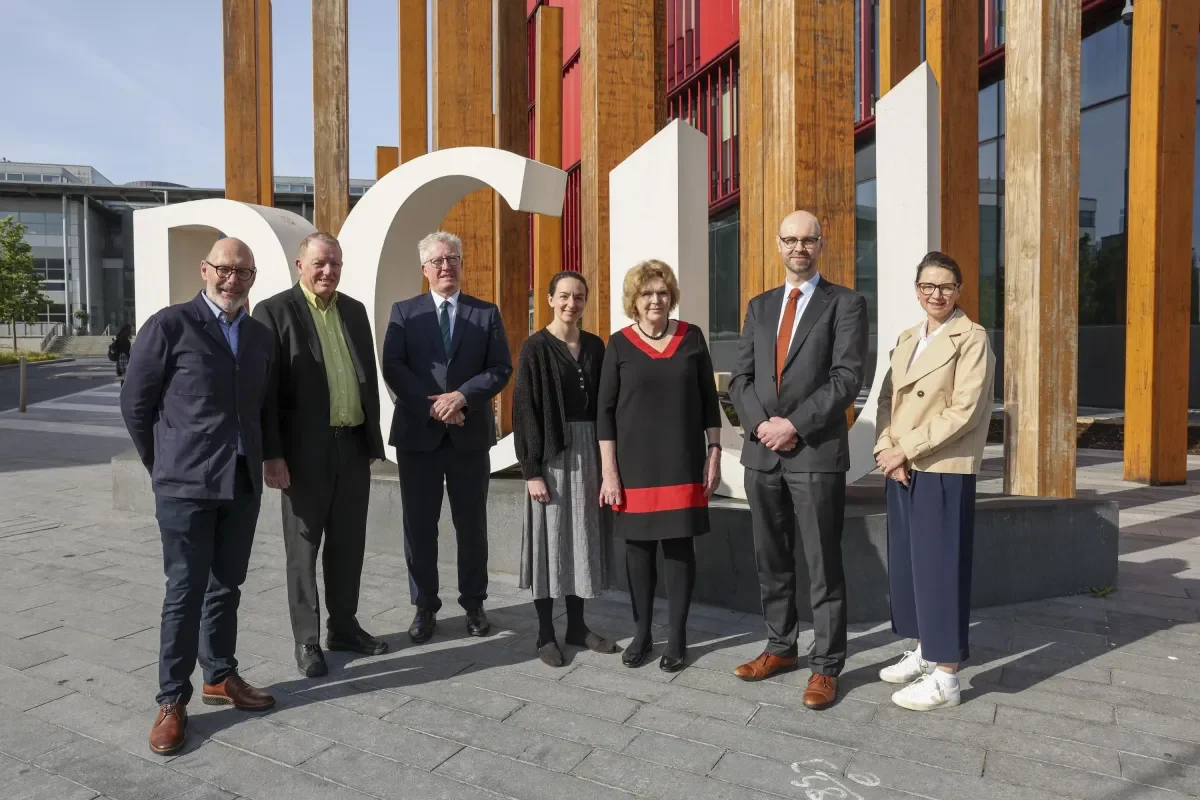
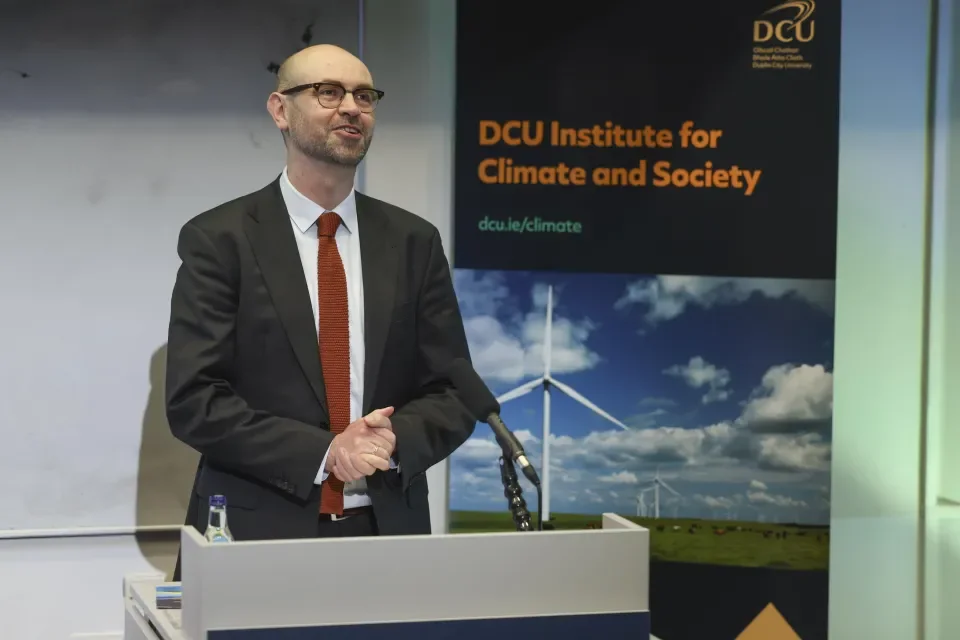
Dr Diarmuid Torney, Director of the DCU Centre for Climate and Society
Dr. Diarmuid Torney, Institute Director and Associate Professor in the School of Law and Government welcomed everyone to the 5th annual conference. The theme this year, focusing on activism, storytelling and the arts grew out of the closing reflection of last year’s conference where poet Jane Clarke read three of her poems that connected with the themes of the conference in a very personal and emotional way. This year’s conference expanded on that, offering a variety of ways people are looking to find inspiration and nurture hope in an increasingly turbulent world.
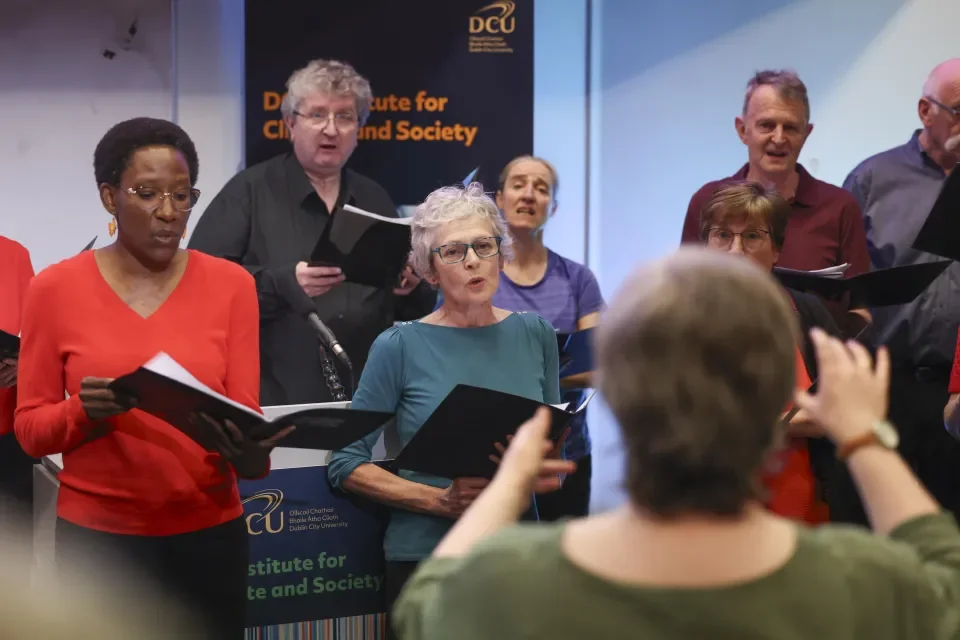
Choral performance
The DCU campus choir opened the conference with two choral pieces: the traditional song “Sumer is icumen in” and a choral version of Robert Burns’s “A red, red rose”. DCU Campus Choir is made up of current and retired staff from across the University’s three campuses and local community members.
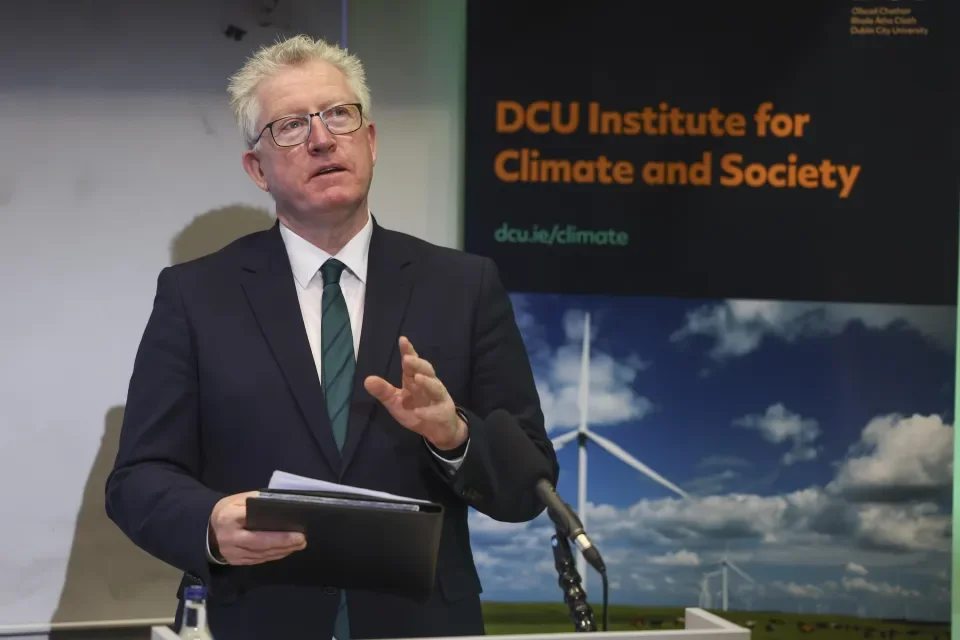
Professor Dáire Keogh, the President of DCU
Professor Dáire Keogh, the President of DCU, thanked the choir for their performance and introduced Mary Lawlor, the Keynote speaker of the conference. He noted that among Lawlor’s many achievements is a medal from the Red Cross Society, an honour shared by Alice Reeves, the pioneering nurse after whom the conference building was named. Observing that “nothing is more important to us than our planet”, Professor Keogh highlighted the power of the arts and humanities to help us to reflect on our values. He praised the role that the Institute, with its focus on society and culture, plays in facilitating this reflection. The annual Institute for Climate and Society conference, he said, has become a fixture in the DCU calendar and a key contributor to the university’s overall mission.
Keynote Address - Mary Lawlor, United Nations Special Rapporteur on Human Rights Defenders
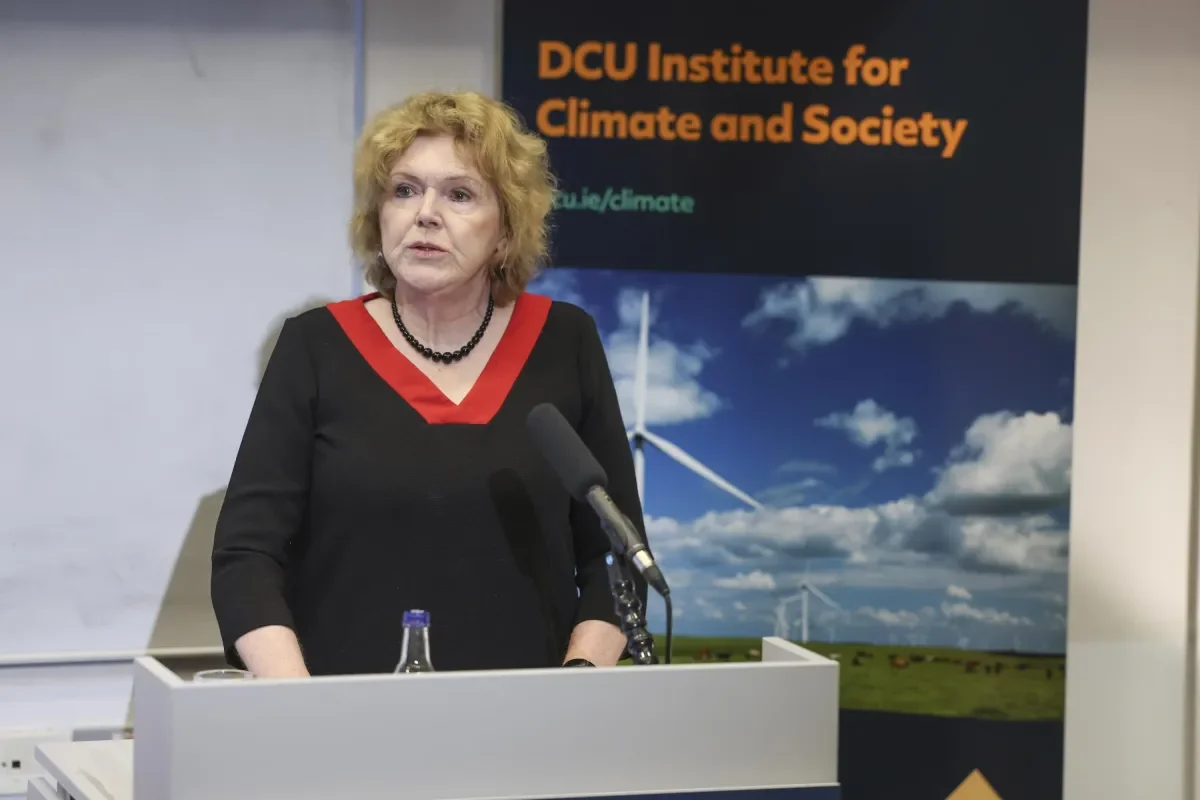
Mary Lawlor, United Nations Special Rapporteur on Human Rights Defenders has had a long and illustrious career in the defence of human rights on a global scale. Currently the UN Special Rapporteur for human rights defenders, she worked at Amnesty International for many years and founded Frontline Defenders. The day of the conference marked the official launch of a new partnership between Frontline Defenders and DCU, which will offer rest and respite fellowships to human rights defenders.
SR Lawlor delivered a powerful address, leading with the central tenet that climate change is a human rights crisis. She called out states worldwide for their inaction which she argued is akin to wilful destruction. She decried the total impunity of those who violently suppress resistance to environmentally damaging industry. Meanwhile she praised environmental activists for their work in defending human rights and holding states accountable to their international obligations.
Following her talk, many questions related to the state of activism and human rights defenders in Ireland. SR Lawlor said that while the situation is better in Ireland than in other places, the state’s rhetoric on human rights does not always match its actions, and with the rise of the far right we must not allow ourselves to become complacent. She reminded the audience that progress is not always linear, but that it is important to work locally, embrace the power of storytelling, and always support those who stand up for human rights, whom she referred to as “the hope for humanity in dark times.”
Panel 1: Defending environmental human rights at home and abroad
The panel was chaired by Dr Rowan Oberman, Assistant Professor, DCU School of STEM Education, Innovation and Global Studies.
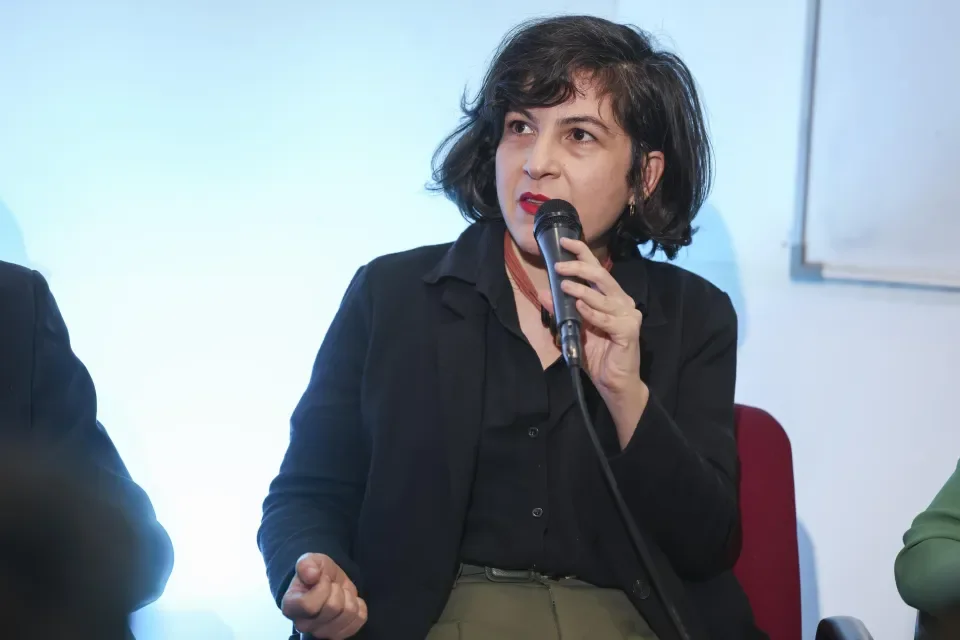
Sarah de Roure, Head of Protection, Front Line Defenders
Sarah de Roure, Head of Protection, Front Line Defenders, spoke about the new Memorandum of Understanding between DCU and Front Line Defenders to establish a joint Rest and Respite Fellowship Programme for Environmental Defenders. She explained that frontline environmental defenders are people around the world who are advocating for things like land rights, access to food, clean water, a clean environment and to be consulted on changes in their communities, or against things like forced displacement. They face threats, intimidation, and sometimes death from both governmental and private interests, yet continue to persist in their advocacy and activism.
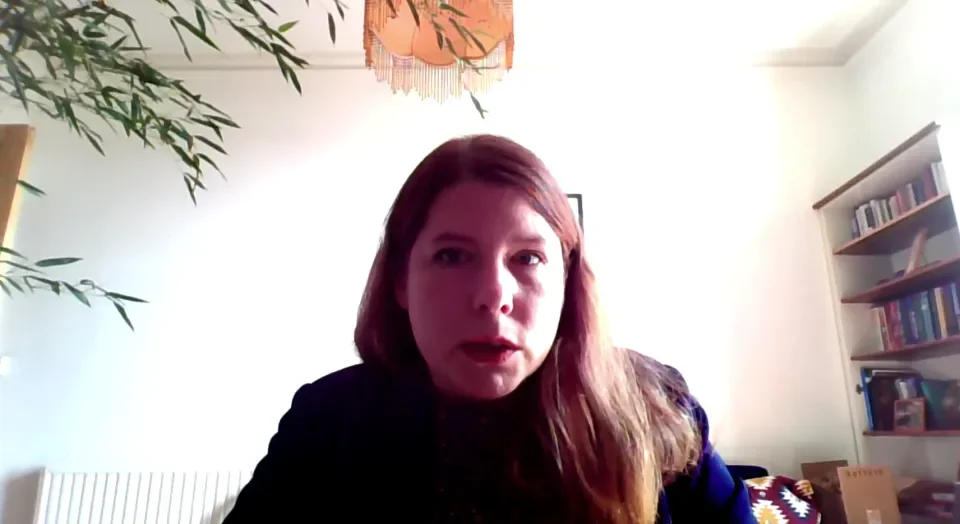
Dr. Harriet Fildes, Head of Programmes, Scottish Human Rights Defender Fellowship, University of Dundee
Dr. Harriet Fildes, Head of Programmes, Scottish Human Rights Defender Fellowship, University of Dundee, highlighted that “we” is the key word when asked about what we can do to protect the human rights of environmental defenders because of the importance of doing everything in partnership with the defenders themselves. She talked about taking a needs-based approach where mentors in academia can assist defenders’ in increasing their economic security through things like supporting preparation of CVs and cover letters, and helping them navigate an often-dehumanising grant process.
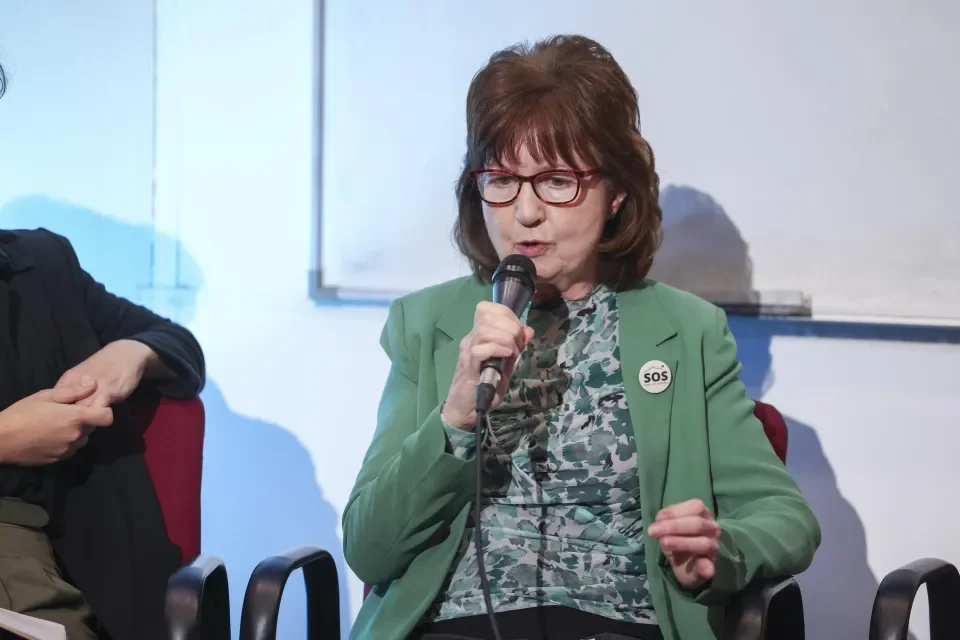
Fidelma O’Kane, Secretary, Save our Sperrins
Fidelma O’Kane, Secretary, Save our Sperrins, spoke about her work with Save our Sperrins and nine lessons she’s learned over the last ten years of doing this work. These nine things relate to using both social media and more traditional media and the importance of networking with a variety of groups both within Ireland and internationally. She also spoke about the challenges the group has faced when building a large coalition of opposition to gold mining in the region, giving an example of when some people tried to use the name and reputation of the group to promote their own interests.
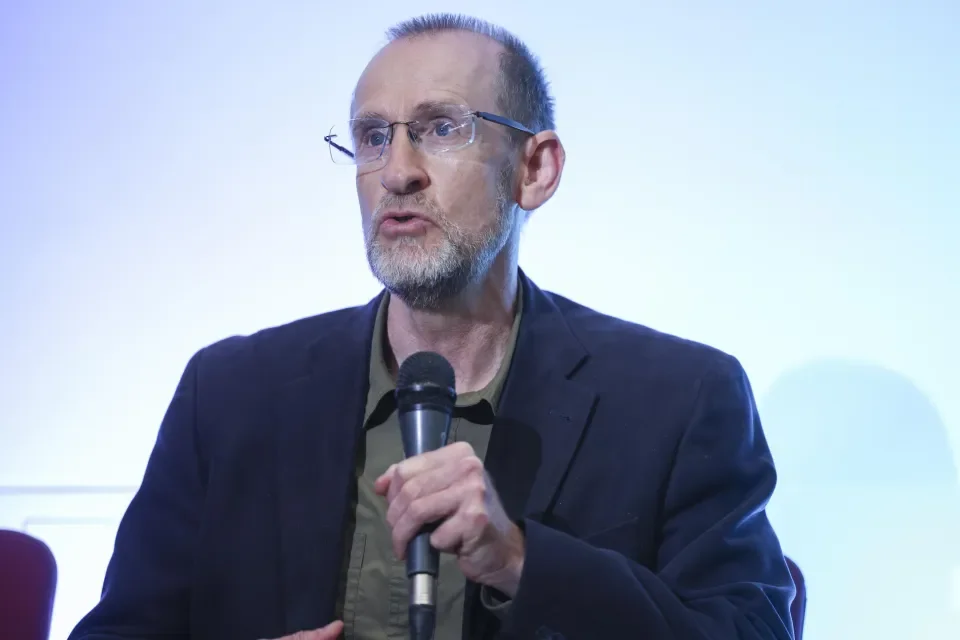
Dr. Walt Kilroy, Assistant Professor, DCU School of Law and Government
Dr. Walt Kilroy, Assistant Professor, DCU School of Law and Government, emphasised voice and visibility. Frontline defenders themselves know what they need, so we need to listen to them and help them find and use their voice without imposing our opinions on them. In addition, he explained that we can help with visibility, but need to be cautious about this because a high profile can sometimes offer protection to defenders, and at other times it can increase vulnerability to threats. That’s why partnering with the defenders and listening to their opinions is so important. He also highlighted that it can be helpful to do a conflict analysis of the situation of frontline defenders. This can get at the underlying causes of conflict and reveal where to focus our immediate attention.
Panel 2: The arts and the environment
The panel was chaired by Prof Derek Hand, Executive Dean, DCU Faculty of Humanities and Social Sciences.
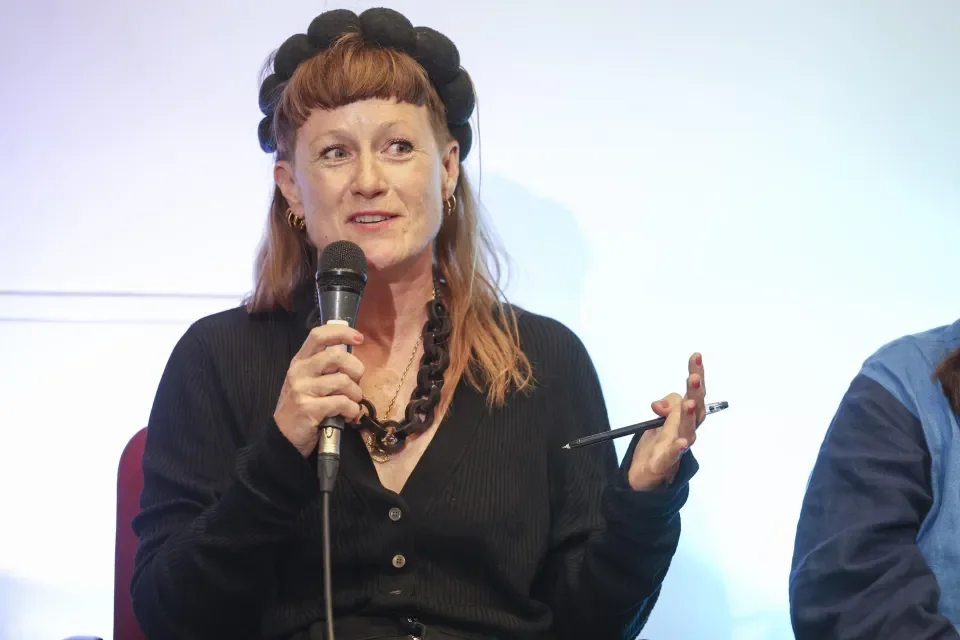
Rosie O’Reilly, Visual artist and Dublin City Council’s first Biodiversity Artist in Residence
Rosie O’Reilly, Visual artist and Dublin City Council’s first Biodiversity Artist in Residence,, underlined the need to move beyond siloed disciplines in the drive towards climate justice, to flatten hierarchies, and to strive for transparency in all action. As an artist, she spoke of how artistic methodologies are vital for problematising the spaces in which they work, critically questioning the underlying assumptions of research and industry. She invited the audience to reject the distinction between nature and culture, saying “art is nature and nature is art.”
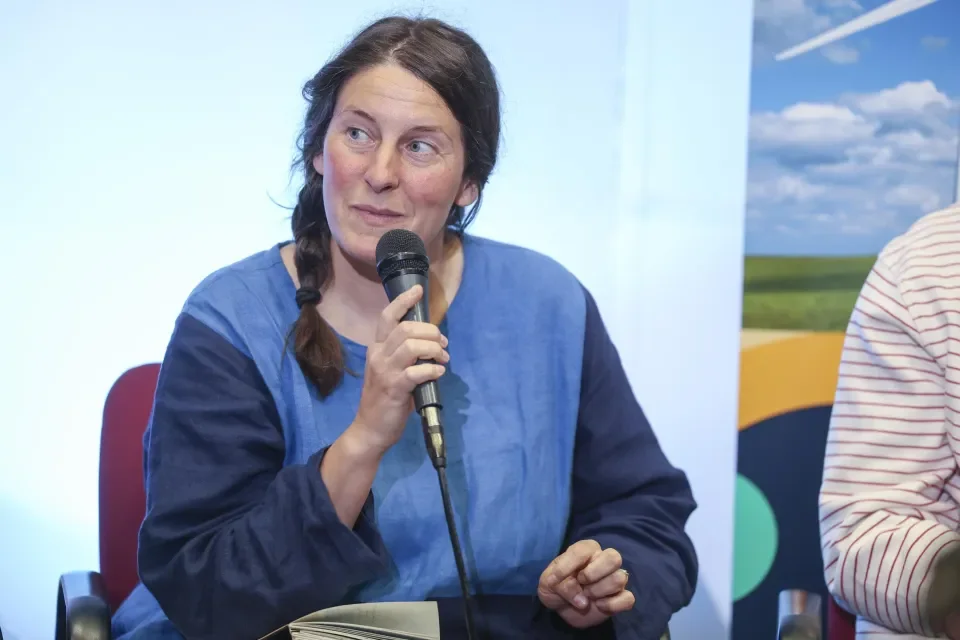
Kerri ní Dochartaigh, Writer
Kerri ní Dochartaigh, Writer, described herself as a “mother, a holder of space, a writer, and a grower.” In her introductory talk, she asked the audience to close their eyes and visualise the ways in which they are supported by the chair, then the building, and finally the earth itself. She then guided a visualisation of a tree with personal importance to each audience member and invited everyone to spend some time with that tree by drawing it, writing about it, or simply taking some time to think about it. Like Rosie O’Reilly, she stated that “Mother Nature is art.” Art, for Ní Dochartaigh, is a space for us to remember that we know nothing, that we are all “creatures who keep on keeping on”, and to find hope through our brokenheartedness.
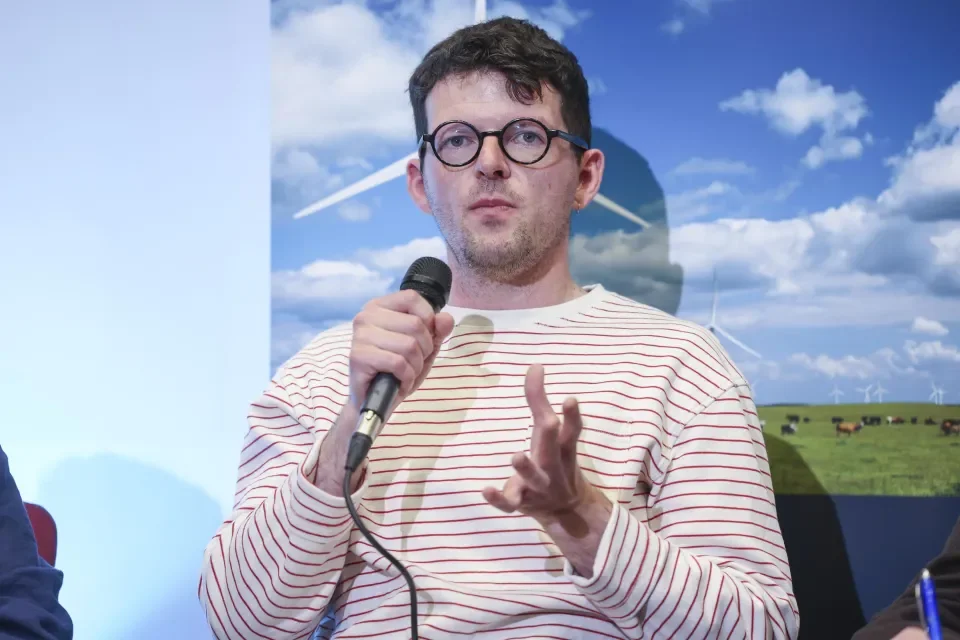
Luke Casserly, Multidisciplinary performance maker and Dublin City Council’s second Biodiversity Artist in Residence
Luke Casserly, Multidisciplinary performance maker and Dublin City Council’s second Biodiversity Artist in Residence, is a performer who creates works in which live audiences and physical landscapes come together. He spoke about coming from a farming background in the Midlands, where there are significant tensions in the transition away from peat extraction. The community is divided between those who are concerned about the loss of economic opportunity and those who are primarily concerned with the possibilities for nature restoration. He introduced his work, most recently exemplified in an attempt to distil the smell of the bog into a perfume, in which he tries to carve out space for both perspectives in a way that embraces slowness, intimacy, and care.
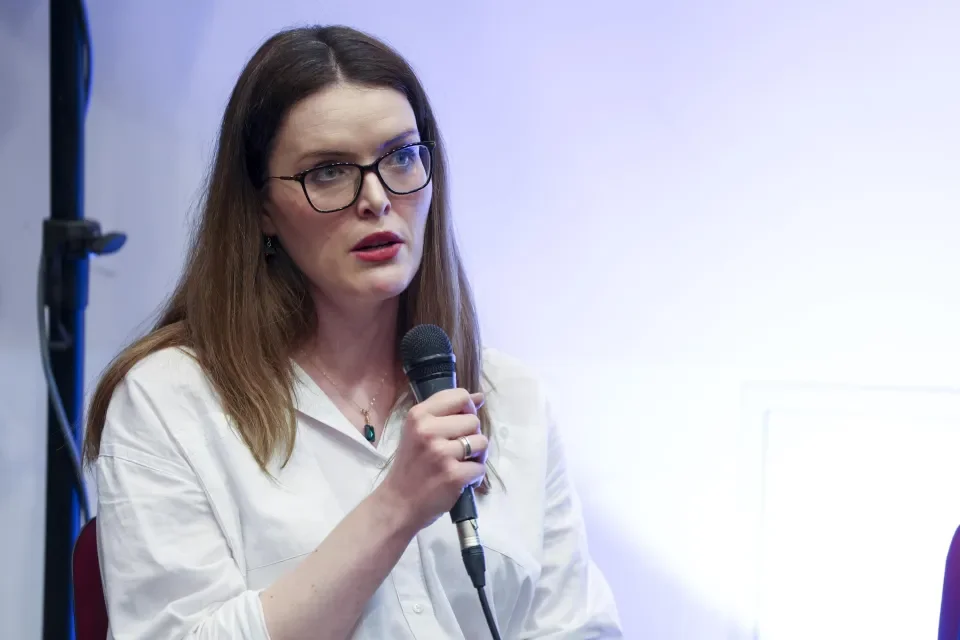
Dr. Ellen Howley, Assistant Professor, DCU School of English
Dr. Ellen Howley, Assistant Professor, DCU School of English, an expert on Irish and Caribbean poetry, comes at the topic of arts and the environment as a teacher and scholar, rather than an artist. Following on from the artists on the panel, she underlined the importance of art to enrich our lives, moving beyond economic valuations and reminding us why life is worth living. For Dr. Howley, art provides us a window for engagement with the environment, to find meaning, emotional support, or even records of lost environments, as in Heaney’s poems documenting Lough Neagh before it was damaged by pollution.
Panel 3: Climate, science, art and activism
The panel was chaired by Dr Pádraig Murphy, Associate Professor, DCU School of Communications.
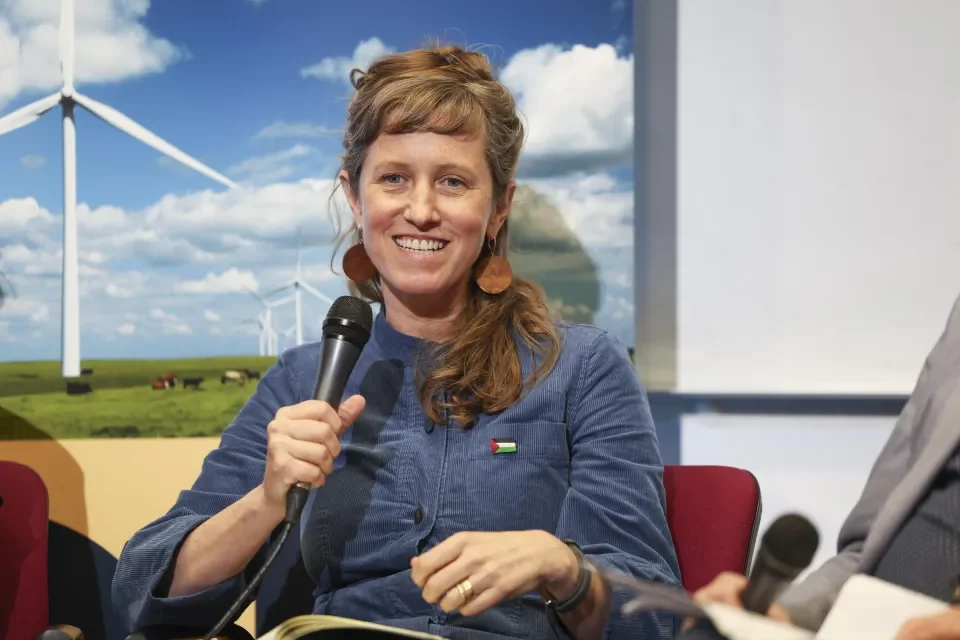
Dr. Eileen Hutton, Artist and Head of Art and Ecology, Burren College of Art
Dr. Eileen Hutton, Artist and Head of Art and Ecology, Burren College of Art, spoke about the Art & Ecology Programme in the Burren where they focus on deep reflection and connection to place using ecocritical theory in their art practice. The programme is holistic, connecting place-making, building relationships with the local rural community, and art. She also talked about how the students engage in developing a “toolkit of deep place embeddedness” that they can take with them wherever they go to connect their art to local communities and the natural environment.
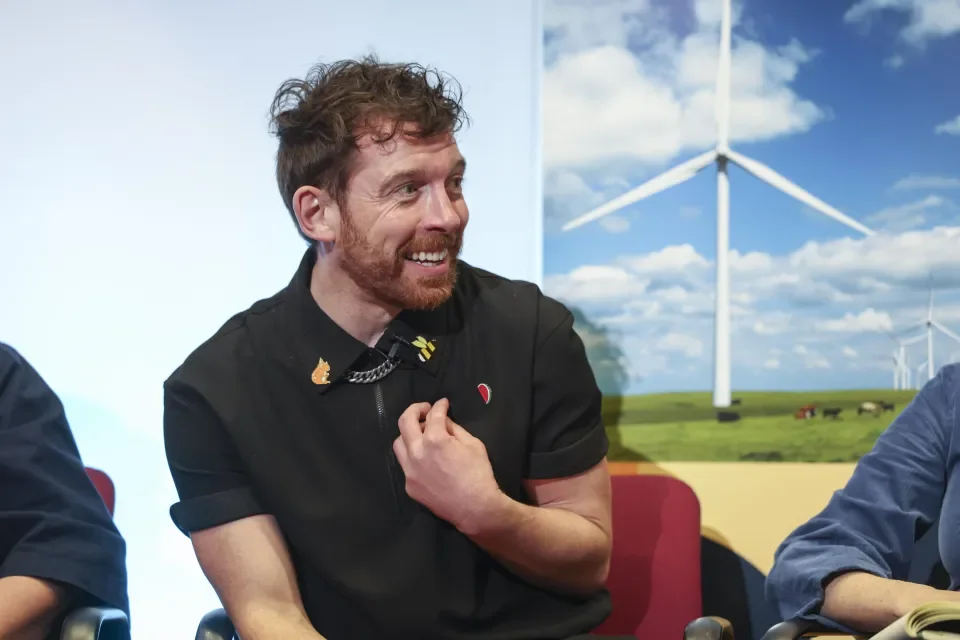
AlanJames Burns, Artist, curator and festival maker
AlanJames Burns, Artist, curator and festival maker, spoke about both the importance and difficulty of access to nature for disabled individuals, connecting that to his own experience growing up with hidden disabilities. For many people with disabilities, there is a comfort in nature where everyone can be themselves without being stared at and without having to understand artificial rules of society that can be difficult for neurodiverse individuals to understand. He also highlighted that people with disabilities are more vulnerable to changes in the climate, but are usually forgotten in planning actions for climate change. This is particularly unhelpful because different ways of thinking and seeing the world can lead to more creative solutions.
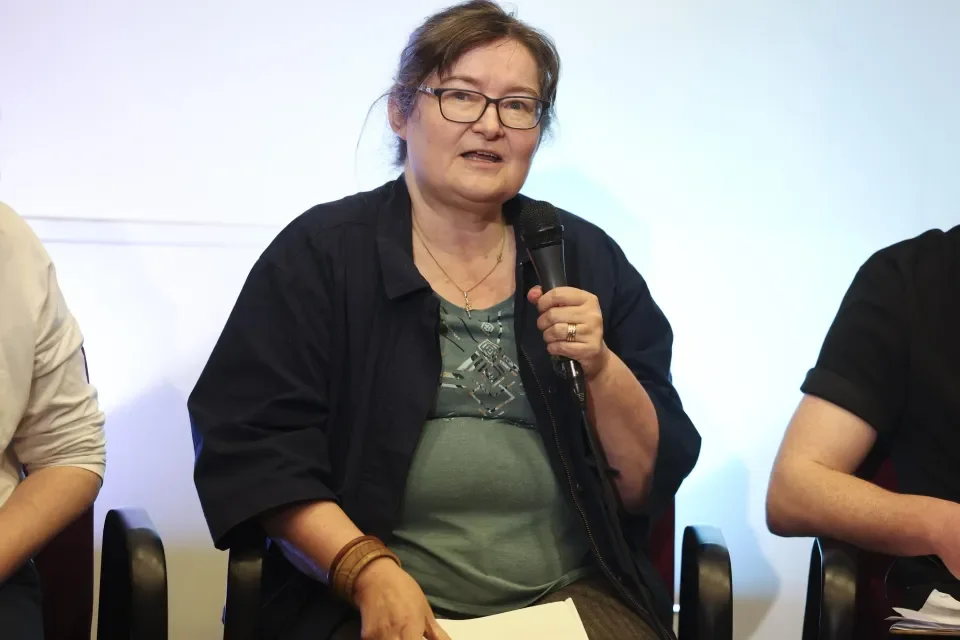
Dr. Cathy Fitzgerald, Ecological Artist, Ecoliteracy and Earth Charter - ESD Educator at Haumea Ecoversity
Dr. Cathy Fitzgerald, Ecological Artist, Ecoliteracy and Earth Charter - ESD Educator at Haumea Ecoversity focuses on bringing education to people outside the formal educational sector. She explained that, to her, being an ecosocial artist means that her work is not only about ecology, it’s also about societies. She highlighted that language can create artificial divisions between art and science and education, and ecology and society. She emphasised the importance of using language that people connect with, for example, she avoids using the word “climate” in much of her work because that word can alienate some people. She also highlighted a fundamental paradox of our time: The problem of climate change is urgent, but we need to slow down and listen to voices from indigenous communities here and abroad to solve it.
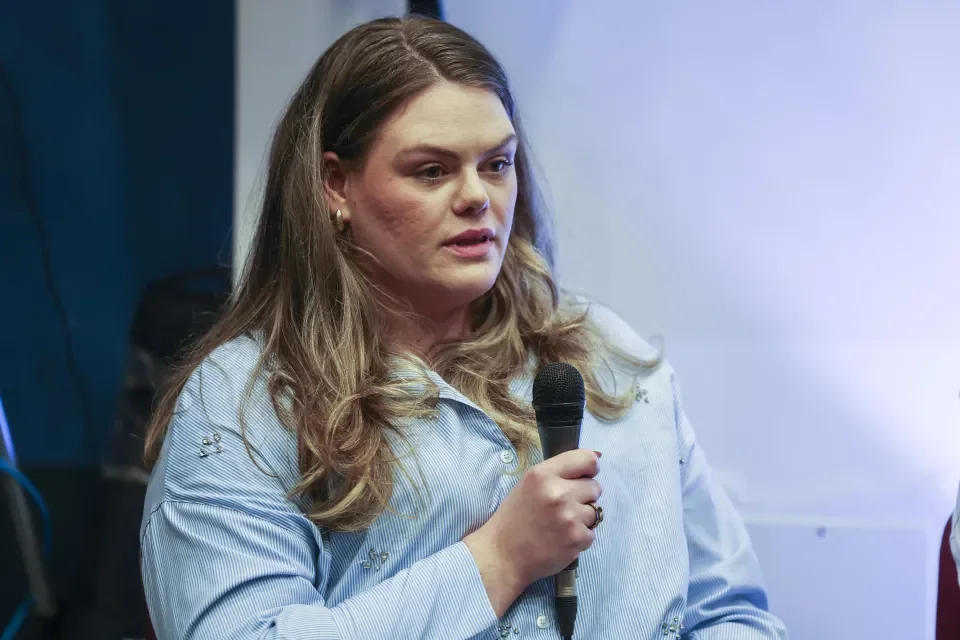
Rebecca Wilson, Science Week Lead, Research Ireland
Rebecca Wilson, Science Week Lead, Research Ireland, explained that Research Ireland was created less than a year ago, in August 2024, by combining Science Foundation Ireland and the Irish Research Council. She explained that the organisation has two functions, promoting research and education & public engagement, mostly through funding. Art is primarily funded both separately through calls for engagement activities, Science Week is an example of where this happens and can be thought of as a way to teach the public about science through stealth, and through research funding. She went on to explain that it’s important to promote hope since people need hope in order to be able to act
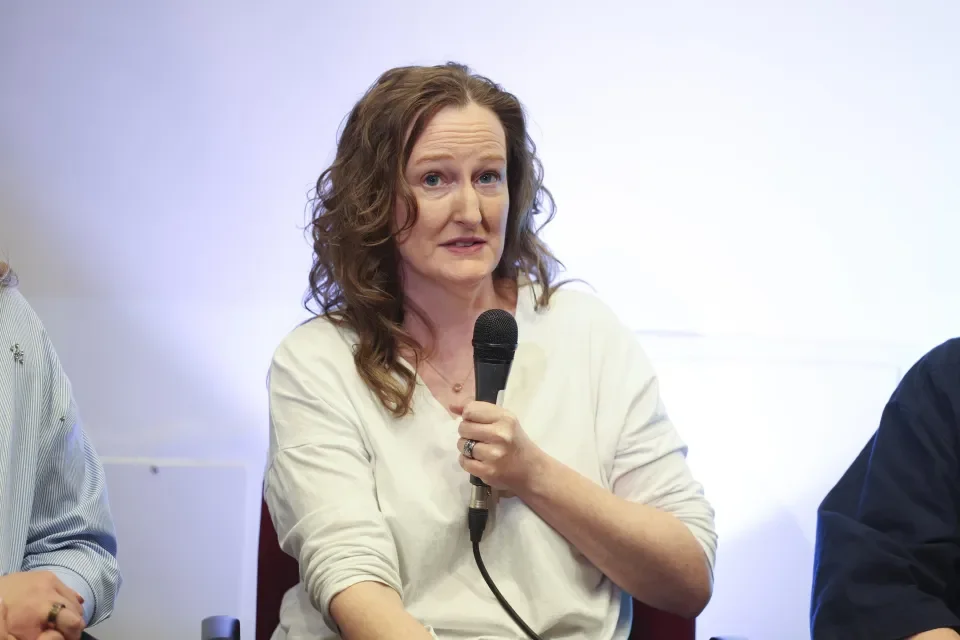
Dr. Trish Morgan, Assistant Professor, DCU School of Communications
Dr. Trish Morgan, Assistant Professor, DCU School of Communications, spoke about the artificiality of silos between disciplines. She explained that there are not hard borders between the social, scientific, and natural. Even the word “art” puts an artificial boundary around what is and is not art, when in reality art is part of being human. Regarding climate change, our scientific knowledge of the problem is a gift to humanity and it’s up to us to reverse a situation where we’re exceeding seven of the nine planetary boundaries, such as those around carbon emissions, biodiversity, and water quality. When asked about the importance of finding allies in unexpected places, she talked about the tension between recognising the fact that our current economic system has gotten us to this crisis point and needing to have “all hands on deck” to solve the problem, including businesses.
Poetry Reading
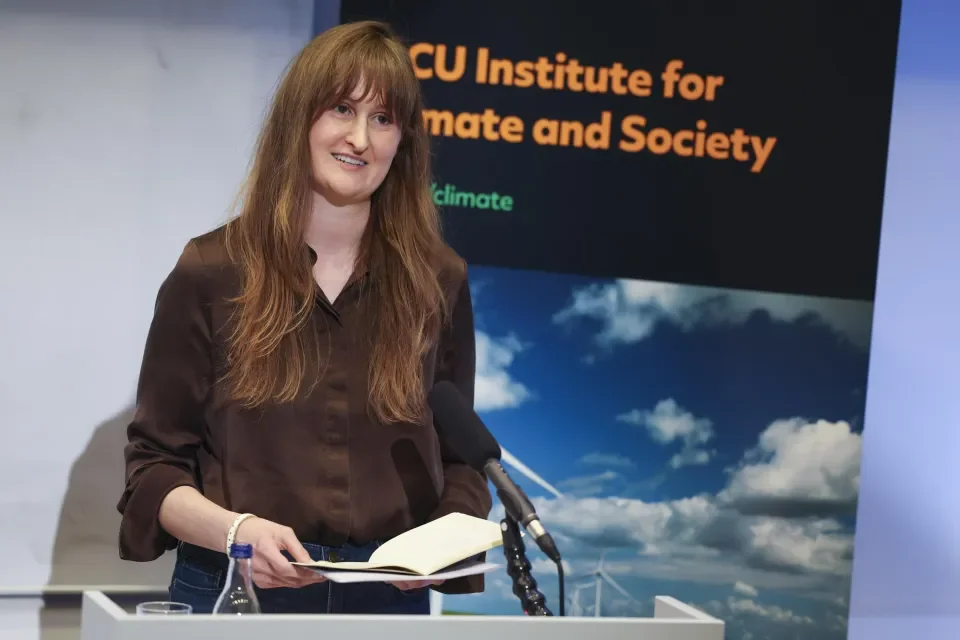
Grace Wilentz, Poet and writer, Writer-in-Residence at Notre Dame, Dublin
Before reading an excerpt from a work-in-progress book-length poem about the reintroduction of Lynx in Europe, Grace Wilentz, Poet and writer, Writer-in-Residence at Notre Dame, Dublin spoke about how most of the work of a poet is solitary, but being in community, like at the conference today, is strengthening. She spoke about how we need to think about what we can learn from nature to help us to live in a complex world with our freedom and integrity intact.
Panel 4: Reporting from the climate front lines
The panel was chaired by Dr David Robbins, Institute Co-Director and Associate Professor, DCU School of Communications
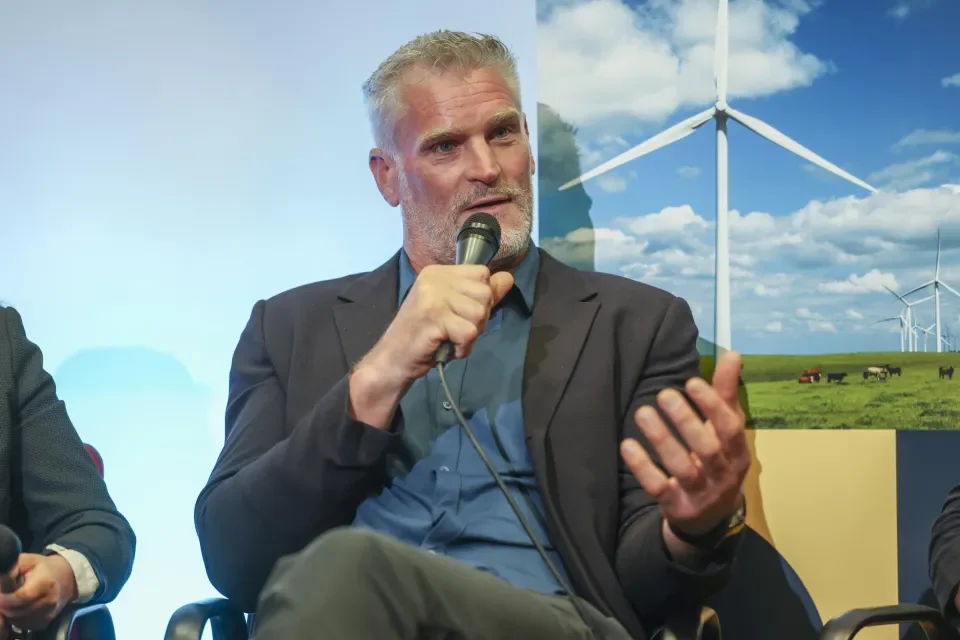
Marcus Stewart, Documentary filmmaker and Managing Director, Earth Horizon Productions
Marcus Stewart, Documentary filmmaker and Managing Director, Earth Horizon Productions, discussed the changing media landscape over his 20+ year career. It is hard to predict where the media landscape is heading, with changes in consumption patterns and algorithmic manipulation. He spoke of the challenges of producing environmental programmes in Ireland, where climate impacts are as yet not extreme - while audio and print media can describe possibilities, television must show the audience.
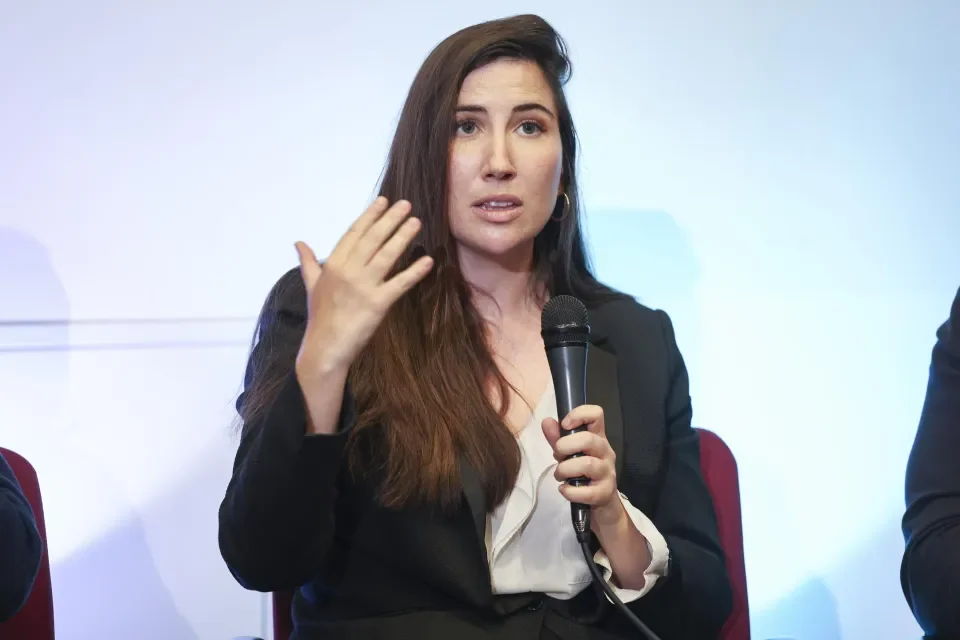
Hannah McCarthy, Lawyer and foreign correspondent based in Beirut
Hannah McCarthy, Lawyer and foreign correspondent based in Beirut, has worked all over the world and spoke of how experiences have shown her the importance of approaching climate change as an interconnected issue, and not a discrete topic. It is bound up in poor policy, in corruption, and inequality. She reports little difficulty in pitching environmental stories to editors, but in her own work has found that it helps to find the human stories, to get across the interesting characters of people at the front lines of climate change.
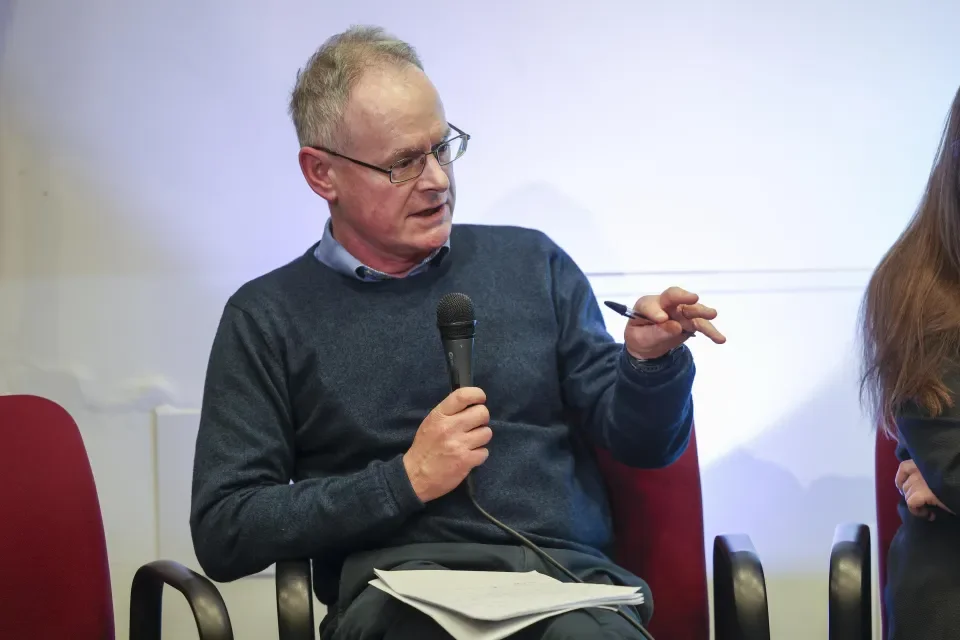
Eamon Timmins, Media Relations Manager, Concern Worldwide
Eamon Timmins, Media Relations Manager, Concern Worldwide, reinforced the connection between human rights and climate change, as discussed in the conference keynote. He said that Irish climate reporting tends to use the future tense and it is important to shift into an understanding that climate change is here, and it’s here now. He spoke of the importance of hope: while disasters are easily reported on, what is often missing in media messaging are stories of adaptation.
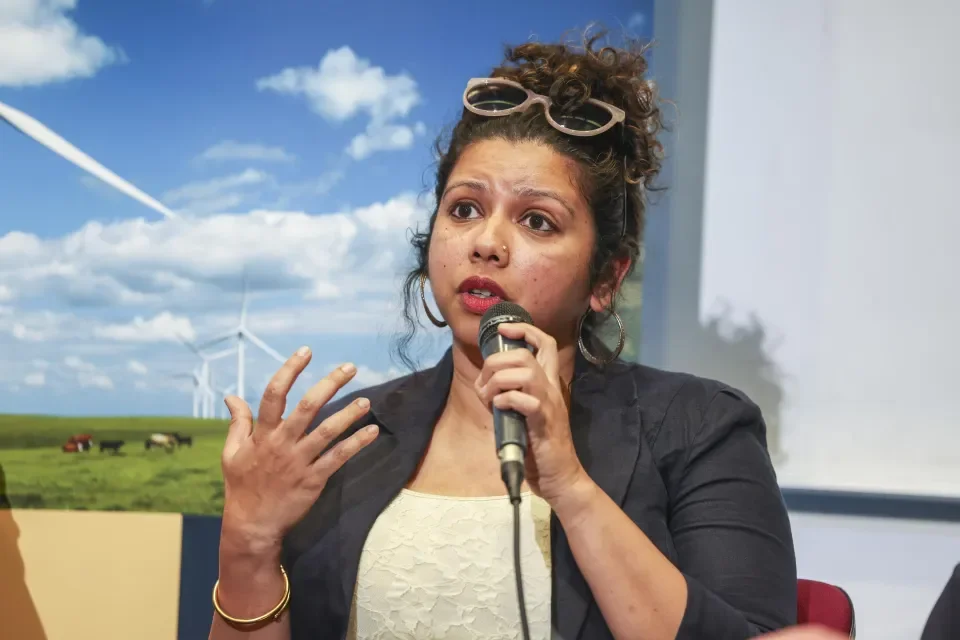
Priyanka Borpujari, Journalist and PhD candidate, DCU School of Applied Language and Intercultural Studies
Priyanka Borpujari, Journalist and PhD candidate, DCU School of Applied Language and Intercultural Studies, insists on the use of the terminology of “crisis” over simply “climate change”. She pointed out low levels of disaster preparedness in Europe compared to Japan, and criticised European media’s lack of integrated vision when it comes to the climate crisis: the challenges facing Global North and Global South are deeply intertwined, yet reporting often makes unhelpful distinctions between “our problems” and “their problems”. She spoke of the lessons to be learned from the resilience of indigenous communities worldwide, and described “solution journalism” as a growing space for the promotion of a message of hope.
Closing reflection - Prof Pat Brereton, Institute Co-Director and Emeritus Professor, DCU School of Communications
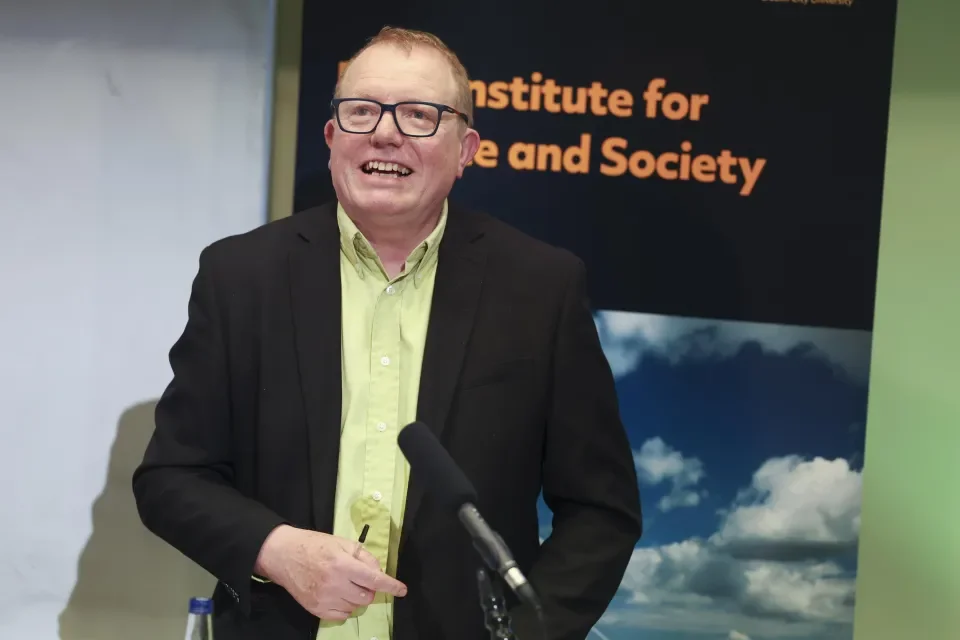
Prof Pat Brereton, Institute Co-Director and Emeritus Professor, DCU School of Communications
Professor Pat Brereton, Institute Co-director and Emeritus Professor in the School of Communications summarised the conference, noting that it was eclectic in some ways, with music and poetry, as well as discussions of climate justice and human rights. He provided short summaries of the panel discussions, and highlighted a common theme around creating active hope through connecting with people and communities in different and more engaging ways.
Closing musical performance
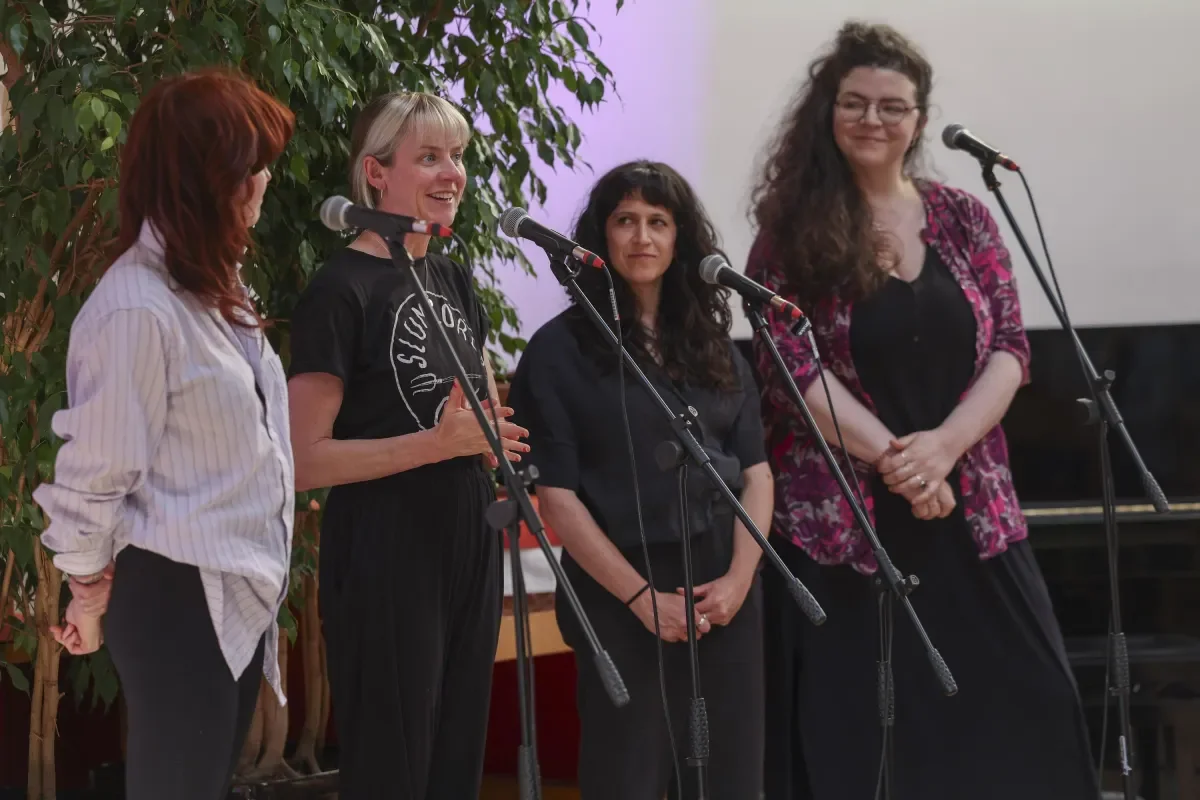
The conference closed with an enchanting performance by acclaimed folk group, Landless, hosted in the DCU Interfaith Centre. Renowned for their intricate, unaccompanied harmonies and evocative interpretations of centuries-old ballads, Lily Power, Méabh Meir, Ruth Clinton, and Sinéad Lynch provided a wonderful end to the conference proceedings.
Exhibitions
Three exhibitions were on display in breakout rooms throughout the day of the conference
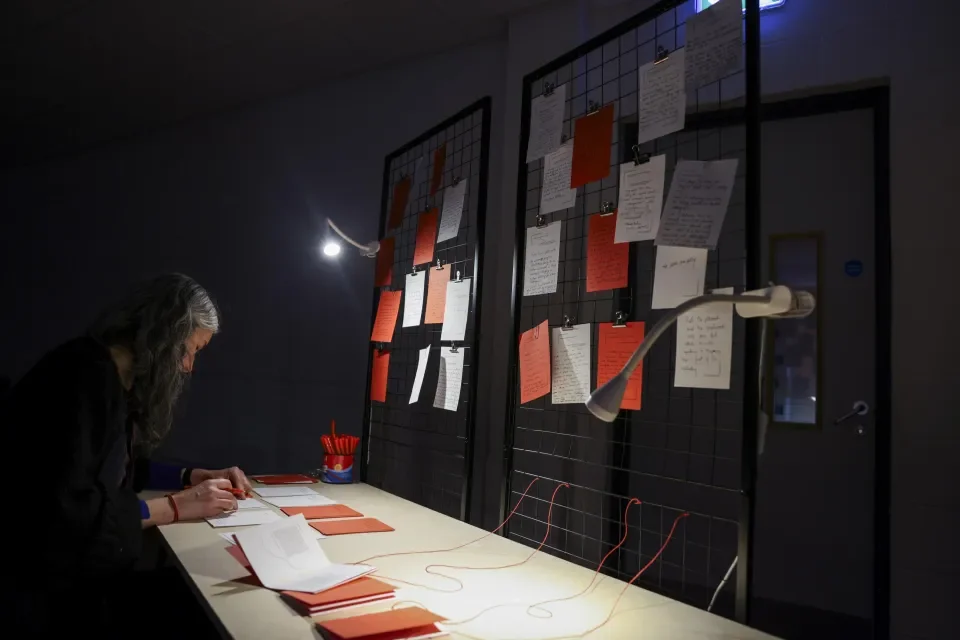
The City at Ten Kilometres an Hour
The City at Ten Kilometres an Hour is an audio-visual installation created by Toshali Chattopadhyay, a PhD researcher at DCU, alongside two Dublin-based visual artists, Clara McSweeney and Mel Galley. Inspired by the gradual decommissioning of Calcutta’s historic tramways, the installation invited viewers to reflect on the pace of everyday life; and what is lost when speed and progress dominate our cities. The exhibition involved real voices and stories from Calcutta, spoken in Bengali, Hindi, and English, along with visuals from the city’s streets. Conference attendees were invited to wander in, take a seat, listen to the stories, watch the visuals, and even share their own memories.

Decomposing/Recomposing Environmental Research
Decomposing/Recomposing Environmental Research was based on a recent workshop hosted by Institute members Dr. Cormac O’Cleary and Dr. Ellen Howley for DCU environmental researchers to help bring the emotional back into the environmental. Using blackout poetry, collage, and zine-making, they helped researchers to decompose climate research—finding emotional undercurrents in dry, scientific texts—and then to “recompose” them into vibrant, personal, creative responses to climate change.
Distillation was a performative response by multidisciplinary performance maker Luke Casserly to the cessation of the peat harvesting industry in Ireland. Luke collaborated with renowned perfume maker Joan Woods to create a unique distillation of the Midlands bog – the place where he grew up – as the starting point for an olfactory encounter that looks at our human relationship to place. It was dedicated to the future of our broken landscapes – in the hope that by listening to them, we might be able to better understand them. Conference participants were invited to view a video that was captured by Bryan O'Brien from the Irish Times in 2023, in the weeks leading up to the project’s premiere as part of Dublin Theatre Festival.
